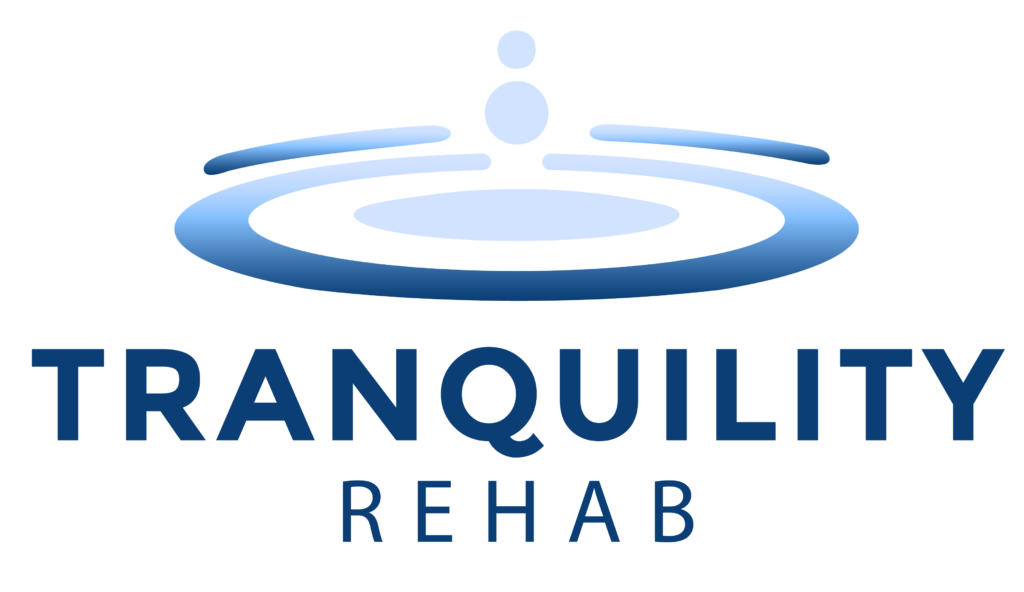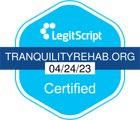Alcohol and Drug Rehab in Malibu
Malibu Drug Rehab at
Tranquility Rehab
In California, more and more people are recognizing that drug and alcohol addiction is a serious and long-lasting problem. Even though people know about this issue, only a small number of those affected actually got help last year. About 2.9 million Californians aged 12 and older had problems with drugs or alcohol, and 6% of them showed signs of having a serious issue with alcohol. Although there are more places to get help in California now, we still need more places where people can get help for both drug and alcohol problems and mental health issues.
In Malibu, there are places where people struggling with addiction can get help. These places offer programs and services that are made just for them. They give people a lot of support in a caring and understanding environment, and they help people get better by talking to them and doing activities that will help them stay sober for the rest of their lives. The rehab centers in Malibu are focused on helping people take back control of their lives, and they offer programs to help people stay on track even after they leave the center.
Treatment Programs at Malibu Drug Rehabs
Rehab facilities located in Malibu provide comprehensive programs designed to address a wide range of dependencies and addictions. These programs are tailored to address the specific needs of each individual, offering a combination of emotional and medical support to aid in recovery and sustain long-term sobriety. The continuum of care typically includes detox, inpatient treatment, outpatient treatment, and aftercare services, providing support to individuals throughout their recovery journey.
- Alcohol Addiction: Many individuals seek rehab for alcohol addiction. Alcohol addiction treatment can include therapy, support groups, and, in some cases, medication-assisted treatment. Family therapy is often integrated to rebuild relationships and create a supportive home environment.
- Drug Addiction: This encompasses a wide range of substances, including opioids, stimulants, and sedatives/hypnotics. Treatment usually involves detoxification, behavioral therapy, medication-assisted treatment, and relapse prevention strategies for long-term sobriety.
- Opioid Dependency: Treatment options for opioid addiction include medication-assisted treatment to help with cravings and withdrawal symptoms, therapy, peer support, and lifestyle changes.
- Prescription Drug Abuse: Treatment involves detoxification, counseling, and strategies for managing pain without medication.
- Behavioral Addictions: Individuals struggling with addictions to behaviors such as gambling or shopping may benefit from therapy, support groups, and lifestyle changes.
- Co-occurring Disorders: If an individual is dealing with a mental health disorder along with their substance use disorder, they may benefit from dual diagnosis treatment, which integrates treatment for both disorders for more comprehensive care.
A Promising Tomorrow Begins Today
What to Expect at an Alcohol Rehab in Malibu
In Malibu, centers for treating alcohol addiction offer a wide range of services to address the complex nature of alcohol dependency. These facilities are committed to establishing a supportive and therapeutic setting where individuals can recover and acquire the essential skills for a sober and satisfying life.
Many alcohol rehab centers in Malibu offer medical detox programs for safe alcohol withdrawal under medical supervision. Patients are supervised by medical staff who may use medications to manage withdrawal symptoms. This crucial initial phase stabilizes patients and prepares them for the next steps in their recovery journey.
Recognizing that each person’s experience with alcohol addiction is unique, Malibu rehab centers create customized treatment plans to address individual needs. This process begins with a comprehensive assessment to determine the severity of the addiction and any co-occurring disorders, leading to a tailored plan that includes therapy, counseling, and support groups.
Various counseling and therapy options are available to address the psychological aspects of addiction. This includes individual therapy to identify the underlying causes of addiction, group therapy for peer support, family therapy to mend relationships, and cognitive-behavioral therapy (CBT) to develop healthy coping mechanisms and change negative thought patterns.
Group therapy and support groups are crucial in the rehabilitation process, providing a sense of community and accountability. Programs such as Alcoholics Anonymous (AA) and other 12-step groups are frequently integrated into Malibu rehabs, offering a safe space for individuals to share experiences, receive support, and build a lasting network of peers.
Malibu alcohol rehab facilities often include educational workshops and classes to help individuals understand the effects of alcohol on the body and mind. These programs also focus on developing practical life skills such as stress management, effective communication, and strategies for preventing relapse, all of which are essential for maintaining long-term sobriety.
Recognizing the common occurrence of co-existing mental health disorders in individuals with alcohol addiction, many Malibu rehabs offer comprehensive treatment for conditions such as depression, anxiety, bipolar disorder, or PTSD. This holistic approach ensures that both the addiction and any underlying mental health issues are addressed, promoting overall well-being and reducing the risk of relapse.
Continued support is crucial for a successful recovery from alcohol addiction. Malibu alcohol rehabs help individuals develop aftercare plans that include outpatient counseling, sober living arrangements, participation in support groups, and ongoing medical care. These plans provide the necessary resources and support to help individuals navigate the early stages of recovery and maintain long-term sobriety.
AA & NA Meetings in Malibu
Participating in Alcoholics Anonymous (AA) and Narcotics Anonymous (NA) meetings in Malibu provides access to a supportive community dedicated to recovery. These gatherings play a crucial role in the recovery journey, offering a secure environment for individuals to share their experiences and learn from others facing similar challenges.
Attending AA gatherings in Malibu provides a supportive and uplifting setting for individuals seeking recovery from alcohol dependency. The typical experience at AA gatherings in Malibu includes the following:
- Friendly Environment: AA gatherings are recognized for their welcoming and non-judgmental atmosphere. Upon arrival, you can expect to be welcomed by members who empathize with your challenges and are present to provide assistance.
- Confidentiality: Respecting anonymity is a fundamental principle of AA. Members honor each other’s privacy and keep shared information during meetings confidential, establishing a secure environment for discussing struggles with alcohol addiction without fear of judgment or stigma.
- Structured Organization: While formats may differ, AA gatherings in Malibu generally adhere to a structured outline. Meetings often commence with the reading of the AA preamble and the Serenity Prayer, followed by members sharing their experiences, strengths, and hopes related to recovery.
- Sharing: Sharing personal stories of addiction, recovery, and ongoing challenges is central to AA gatherings. While sharing is encouraged, it is voluntary, and individuals can choose to listen if they prefer not to speak.
- Supportive Community: AA gatherings cultivate a sense of community and camaraderie. You’ll have the opportunity to connect with others who understand your journey and can offer encouragement, guidance, and companionship.
- 12-Step Program: AA is based on the 12-step program, serving as a framework for recovery. Meetings often include discussions and reflections on the steps and how they can be applied to daily life.
- Speakers: Some AA gatherings in Malibu may feature guest speakers who share their personal stories of addiction and recovery. These talks can be inspiring and provide hope to those who are struggling.
- Socializing: Following the formal segment of the meeting, there is usually time for socializing and fellowship. This offers an opportunity to connect with other members, exchange contact information, and establish a support network outside of meetings.
Attending NA meetings in Malibu can provide crucial support and encouragement for individuals seeking to overcome drug addiction. Here’s what you can typically expect at NA meetings in Malibu:
- Creating a welcoming atmosphere is a priority at NA meetings in Malibu, with the aim of providing a non-judgmental and inclusive space for individuals recovering from drug addiction.
- Respecting the privacy of members and maintaining confidentiality of shared information are fundamental principles of NA, ensuring a secure environment for open discussions about personal experiences, challenges, and accomplishments without the fear of being judged.
- While the specific format may vary, structured meetings are generally followed at NA meetings in Malibu, often commencing with readings of the NA preamble and the Serenity Prayer, followed by members sharing their experiences, strengths, and hopes related to recovery.
- Sharing personal stories of addiction and recovery is a central aspect of NA meetings, and while encouraged, it is entirely voluntary, allowing individuals the autonomy to choose to speak or simply listen.
- NA meetings in Malibu promote a sense of community and camaraderie, offering participants the opportunity to connect with others who can provide encouragement, guidance, and friendship while understanding their journey.
- NA operates on the 12-step program, which provides a structured approach to recovering from drug addiction, often involving discussions and reflections on the steps and their application to everyday life.
- Guest speakers who have experienced addiction and recovery often share their personal stories at some NA meetings in Malibu, providing inspiration and hope to those in need.
- Following the formal part of the meeting, members usually have time for socializing and fellowship, allowing them to connect, exchange contact information, and build a support network that extends beyond the meetings.
Finding AA and NA Meetings in Malibu
Local Resources: Hospitals, community centers, and churches may be able to provide schedules of meetings in the local area.
Online Resources: Both AA and NA offer comprehensive online resources. To find AA meetings, individuals can visit aa.org, and for NA meetings, they can visit na.org. These websites feature searchable databases to help locate meetings in Malibu.
Mobile Apps: Several mobile apps are available to assist in finding AA and NA meetings in Malibu. These apps provide up-to-date information on meeting times and locations.
Word of Mouth: Speaking with individuals who have successfully navigated recovery can be an invaluable resource. These individuals can provide personal recommendations for AA and NA meetings in Malibu and may help connect you with sponsors and other support networks within the community.
Why Choose Tranquility Rehab for Addiction Rehab in Malibu?
When looking for addiction treatment in Malibu, Tranquility Rehab stands out as a top choice for our empowering environment. Here, individuals can start their recovery journey with confidence and optimism. Our devoted team of experts is dedicated to providing high-quality care and supporting individuals on the path to long-term recovery. At Tranquility Rehab, you can anticipate:
- Comprehensive Treatment Approach: We deliver care that addresses all angles of recovery, including the social, psychological, and physical elements of addiction. Our programs incorporate a range of therapies for comprehensive support.
- Empathetic and Experienced Team: Our team of knowledgeable addiction specialists is well-versed in effective treatment methods. We foster a non-judgmental environment where clients can feel safe and respected.
- Personalized Treatment Plans: At Tranquility Rehab, we recognize that each individual’s recovery journey is different. We customize our treatment plans to ensure our care is attuned to your needs and preferences.
- Luxurious and Peaceful Facilities: Our treatment center features luxury amenities to promote relaxation and comfort.
- Continued Support and Aftercare: We work with clients to help them take their next step in their recovery journey after completing our program. We can help clients locate sober housing, outpatient care, and 12-step groups in their area, so they can continue their sobriety journey feeling prepared and supported.
- Reputation and Success Stories: We have helped many individuals overcome addiction and build healthier, more fulfilling lives.



